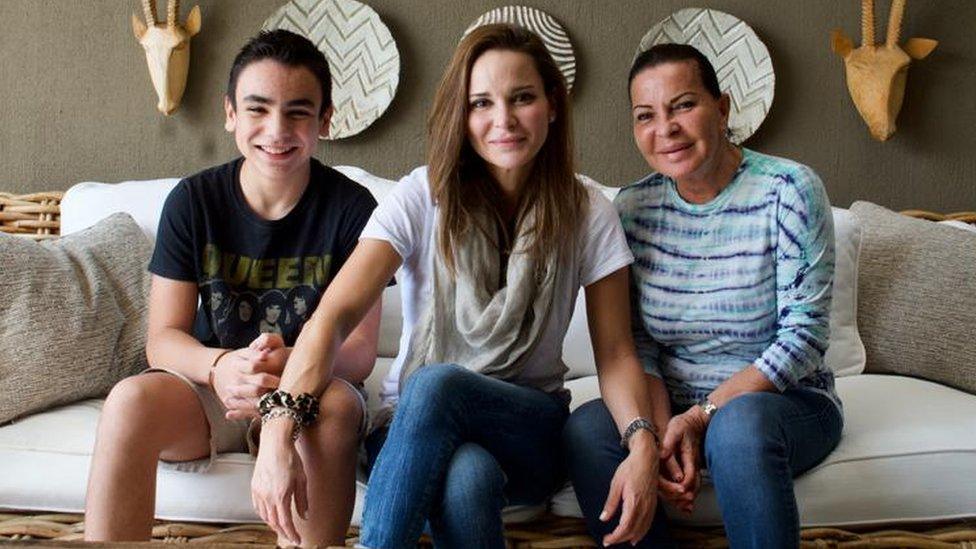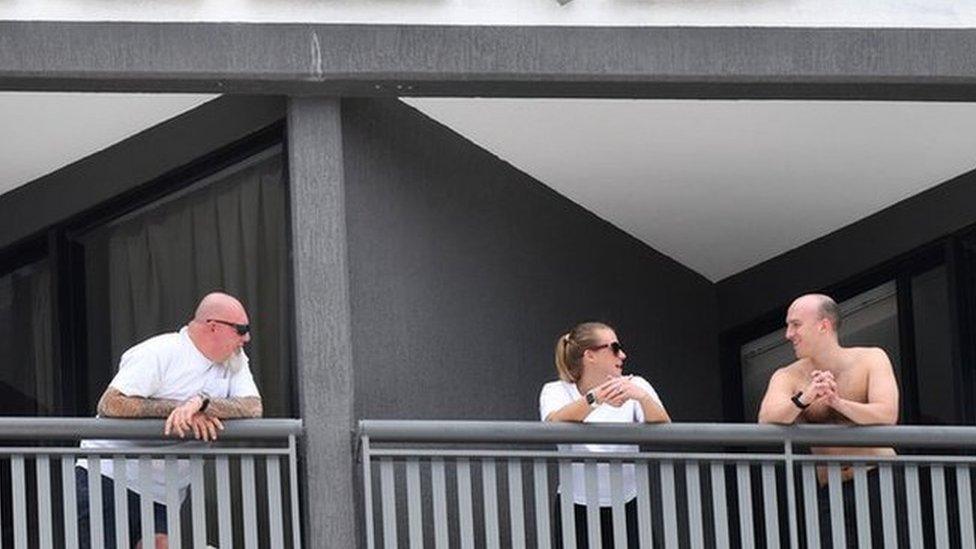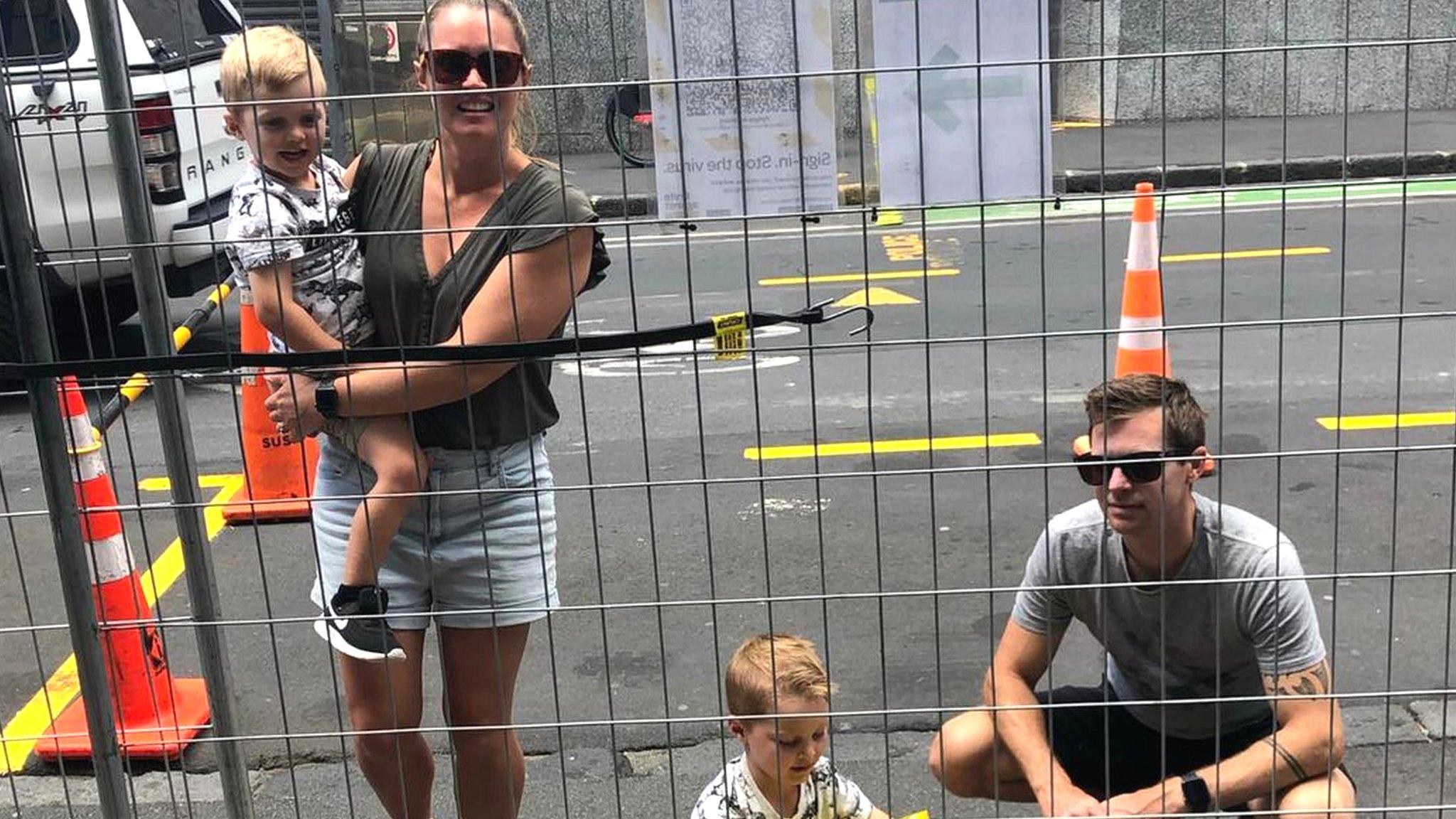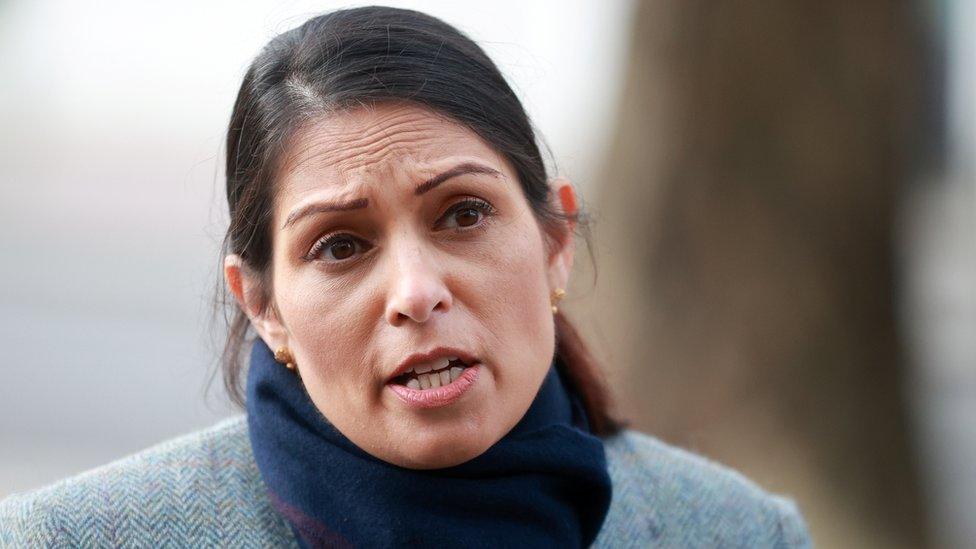Covid: Quarantine hotel plans set to be announced
- Published
See inside a five-star quarantine hotel
Some travellers coming to England will have to quarantine in hotels amid concerns about new Covid variants, the government is expected to announce.
Boris Johnson will discuss proposals with ministers later, but a decision may not be announced until Wednesday.
Most foreign nationals from high-risk countries are already denied UK entry, so the new rules will mainly affect returning UK citizens and residents.
Quarantine rules are set by each of the UK nations but tend to be similar.
The requirement to isolate in a hotel for 10 days will apply to arrivals from most of southern Africa and South America, as well as Portugal, because many flights from Brazil come via Lisbon, according to BBC Newsnight's political editor Nicholas Watt.
He said there had been "no definitive decision yet" on arrivals from other parts of the world and this was "still a live issue".
Whitehall sources said those quarantining in hotels would have to pay for the costs of their own accommodation.
The prime minister will later chair a meeting of the Covid operations committee, attended by senior ministers, to discuss the options.
Meanwhile, more than 100,000 people have died with Covid-19 in the UK, after 1,631 deaths within 28 days of a positive test were recorded in the daily figures.
At the moment, almost all arrivals to the UK need to have tested negative for Covid-19 within the 72 hours before they set off to be allowed entry. Then they still have to quarantine for up to 10 days, although this can be done at home.
In England, this self-isolation period can be cut short, external with a second negative test after five days.
Quarantine rules are set separately in England, external, Scotland, external, Wales , externaland Northern Ireland, external but have only tended to differ slightly, and there has been a "four nations" approach to discussions around hotel quarantine, Scotland's First Minister Nicola Sturgeon said.
But deputy first minister John Swinney said his government would "go at least as far" as any Westminster policy, adding: "If these UK restrictions are at a minimal level, we will look at other controls we can announce - including additional supervised quarantine measures - that can further protect us from importation of the virus."
Hotel quarantine is already in use in countries including New Zealand and Australia.

'An unnecessary expense'

Jessica Gold (centre), her son William Copsey (left), and her mother, Rossana Gold, are trying to get home to the UK from South Africa
Jessica Gold, from London, has been trying to get home from South Africa with her mother, 77, and son, 13, since 1 January - but their flights have been cancelled three times.
She says the idea of having to quarantine in a hotel when she eventually manages to get home is "absolutely absurd".
"Now we are booked to return on 16 Feb, and there is no way we can or will stay in a hotel to quarantine when I have my own place and we can quarantine there, as we have done in the past," says Jessica, who flew out to her safari lodge in Greater Kruger National Park, on business, at the end of November.
Jessica, 42, wants the government to get tougher on enforcing travellers' home quarantines, rather than bringing in the hotel rule which she says is "ridiculous and an extra unnecessary expense during these very tough times".
Jessica adds that she's looking into other ways of getting home earlier, before any potential new rules kick in.

Shadow home secretary Nick Thomas-Symonds told MPs on Tuesday that bringing in hotel quarantine plans for arrivals from a small number of countries would leave "gaping holes" in the UK's defences against any new, unknown variants of coronavirus coming from across the globe.
Home Secretary Priti Patel said all current travel measures were being kept under review and the government "will not hesitate to take further action" to combat variants, especially as they could effect the efficacy of Covid vaccines.
Travel writer Simon Calder told BBC Breakfast it was "going to be tricky" to identify people arriving from the high-risk countries, as travellers could go to a third country before coming to the UK.
He said British citizens in Portugal, for example, could travel to Madrid in order to fly back to the UK.

How does Australia's system work?

Passengers in Australian quarantine hotels have all meals delivered to their room
In Australia, travellers are allocated a hotel room on arrival and taken there by bus. Often, entire flights are accommodated in the same hotel.
The New South Wales government promises to make "every attempt" to find suitable accommodation for travellers and families. But availability of rooms means there are severe limits on the number of people who can arrive in the country on any given day.
The hotel quarantine lasts a minimum of 14 days up to 24 days, providing a person tests negative twice, external.
The passenger must cover the cost of quarantine - at about £2,800 for a family of two adults and two children.
Fees are waived for those who can prove they are unable to pay, and there are certain exemptions.
But not following the rules is a criminal offence, and in New South Wales carries fines of around £6,000 for individuals, six months in prison, or both - with an extra fine for each day the offence continues.

Hotel quarantine is among the measures credited with limiting cases of coronavirus in Australia - which has a population of around 25 million - to just 28,777 positive cases during the entire pandemic, a smaller number of cases than is currently being recorded in the UK every day.
But international arrivals to Australia have fallen dramatically since its hotel quarantine policy was introduced in March 2020.
Between July and October 2020, just 72,111 people arrived in Australia to live, work or visit - compared with 7.5 million people in the same period in 2019, according to Australian government figures.

QUARANTINE: What are the UK travel rules?
TESTING: How do I get a virus test?
LOOK-UP TOOL: How many cases in your area?

Rob Paterson, chief executive of Best Western Hotels, said his hotels would be well-prepared for the expected new policy.
Some already have Covid infection controls in place, he said, as they have been used to host "step-down" patients who complete their recovery in hotels to free up hospital beds.
Mr Paterson told BBC Breakfast quarantining customers would like to see reduced prices, a contact arrival process, CCTV and security to stop people leaving and meals delivered three times a day outside the door - along with clean linen and towels.
Boris Johnson: “That idea of looking at hotels is certainly one thing we are actively now working on.”
Joss Croft, chief executive of UKinbound, which represents the tourism sector, said he hoped hotel quarantine rules would cover as few countries as possible and told the BBC's Newsnight the industry had been "decimated".
In a joint statement, the Airport Operators Association and Airlines UK said the country already had "some of the highest levels of restrictions in the world" and tougher rules would be "catastrophic".


- Published27 January 2021

- Published11 February 2022

- Published1 July 2022

- Published20 January 2021
